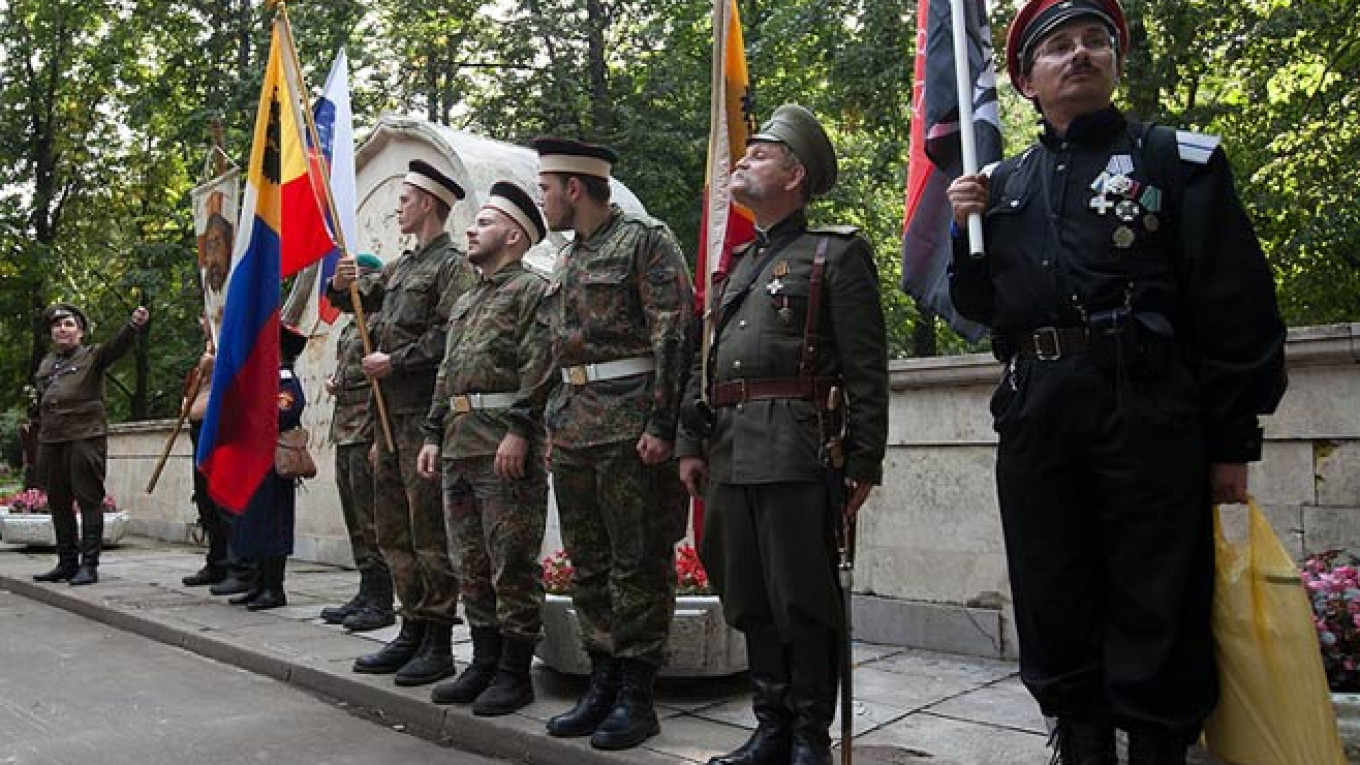Whether through a stroke of pure political genius or sheer good luck, President Vladimir Putin's Crimea venture and his response to the Maidan uprising in Kiev have helped stave off, at least for now, a potentially formidable challenge to his rule: the merger of the liberal and nationalist agendas.
The dramatic events in Kiev have shown what it takes to topple an entrenched post-Soviet autocracy practicing state capture and perpetuating its rule through repression, electoral manipulation and propaganda.
Former President Viktor Yanukovych's kleptocracy crumbled when it encountered a broad national liberation movement demanding an accountable government, equal justice, an end to government corruption and freedom of speech and assembly. This agenda is shared by the two political currents driving the movement — pro-Western liberals and conservative Ukrainian nationalists, united behind the idea of building a modern, European Ukrainian state. What brought them together was the vision of Ukraine's future in Europe, jettisoned by Yanukovych and their total rejection of Putin's Eurasian Union.
It is around a similar vision of Russia as a modern European state with government accountability, honest elections, rule of law and democratic freedoms that the post-Soviet generation of liberals and nationalists started to coalesce in mid-2013 during Alexei Navalny's spectacular campaign for Moscow mayor. Navalny mastered an almost seamless fusion of the new liberal and nationalist agendas.
A new version of Russian nationalism was emerging — focused more on Russia's modernization than on imperial glory. This nationalist force strongly opposed Putin's Eurasian project, seeing Russia's destiny as a European democracy, not a Eurasian satrapy. The new nationalism was strongly anti-Putin, rejecting, along with liberals, the moral and ideological underpinnings of Putin's system.
Crimea changed all that. The new generation of nationalists could not help but endorse Putin's actions to bring back Russia's historic lands, proving that imperialism trumps civic patriotism in Russia. The liberals largely denounced the move against Ukraine. Moscow's portrayal of Maidan as a fascist coup coupled with an intense demonization of the European Union works to destroy the unifying idea of a European Russian state. The emerging coalition floundered.
It is not clear whether Putin has hijacked the new Russian nationalism for good. But for now, he killed their alliance with liberals and eliminated a Kiev-style challenge to his rule.
Vladimir Frolov is president of LEFF Group, a government relations and PR company.
A Message from The Moscow Times:
Dear readers,
We are facing unprecedented challenges. Russia's Prosecutor General's Office has designated The Moscow Times as an "undesirable" organization, criminalizing our work and putting our staff at risk of prosecution. This follows our earlier unjust labeling as a "foreign agent."
These actions are direct attempts to silence independent journalism in Russia. The authorities claim our work "discredits the decisions of the Russian leadership." We see things differently: we strive to provide accurate, unbiased reporting on Russia.
We, the journalists of The Moscow Times, refuse to be silenced. But to continue our work, we need your help.
Your support, no matter how small, makes a world of difference. If you can, please support us monthly starting from just $2. It's quick to set up, and every contribution makes a significant impact.
By supporting The Moscow Times, you're defending open, independent journalism in the face of repression. Thank you for standing with us.
Remind me later.


